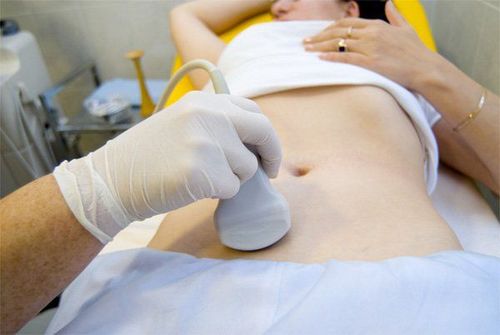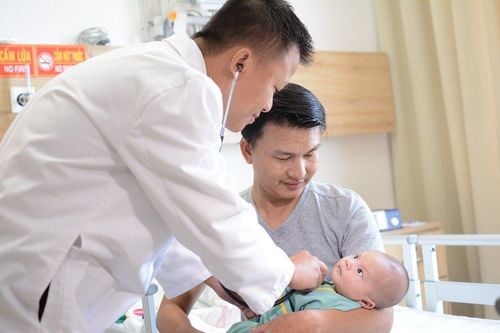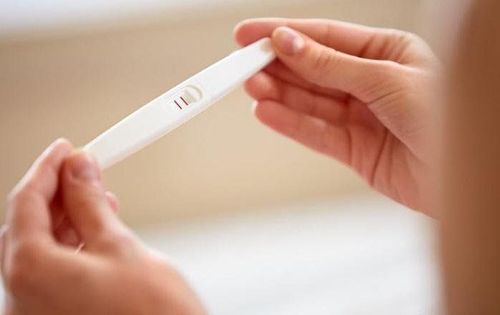This is an automatically translated article.
The article is professionally consulted by Master, Resident Doctor Nguyen Thi Tam - Clinician - Reproductive Support Center - Vinmec Times City International Hospital.Pregnancy and childbirth is the dream of every couple. However, not every family can achieve complete happiness while still haunting the "disease" of infertility. This is a problem not only for the wife but also for the husband or a combination of both. Early recognition and early diagnosis, timely intervention orientation is an effective solution to quickly receive good news
1. What is infertility?
Infertility is a condition in which a couple after a year of marriage and have sex on average 2 to 3 times per week, completely without using any contraceptive method, and the wife still does not get pregnant. In case the wife is over 35 years old, this period is only shortened to 6 months.Infertility classification includes two main groups, including primary infertility when the wife has never been pregnant and secondary infertility when the wife has at least one previous pregnancy, then at least one year of actively wanting to have children but have not conceived again.
Causes of infertility are very diverse. Nowadays, with the strong development of medical research facilities, not only diseases of the reproductive organs, diseases of the whole body, lifestyle, unhealthy habits, psychological life, spiritual god... shows a link to infertility as well. Accordingly, the causes of infertility due to both sexes are similar, in the remaining cases, the cause is unknown, accounting for 20%. However, regardless of the cause, it is necessary to examine and carry out the necessary investigations to identify and plan interventions.
2. How is infertility diagnosed?

3. Laboratory tests needed to diagnose infertility
3.1. Routine Tests These are tests that examine general health based on organ system function. In particular, special attention should be paid to the risk of sexually transmitted diseases, endocrine and metabolic disorders.3.2. Selective test in women Female sex hormone test: FSH, LH, Estradiol, PRL, Progesterone Thyroid hormone: T3, T4, TSH Cervical cancer screening Urine, vaginal test helps to find Inflammation Uterine and adnexal ultrasound examination for malformations, structural abnormalities Hysterosalpingo-tubal contrast endoscopic hysteroscopy, abdominal cavity if there is suspicion of anatomical, structural, or obstructing deviations Cervical mucus test after intercourse Ovulation test, ovarian reserve to assess egg quality Genetic testing to help determine if there is a genetic defect causing infertility

Test for male sex hormones: androgen, testosterone Semen analysis to investigate the number, ability and shape of sperm. Looking for infection Post-ejaculatory urinalysis for sperm to diagnose retrograde ejaculation Scrotal ultrasound for varicocele or other problems in the testicles and related structures Prostate ultrasound for signs Signs of urethral hypertrophy Genetic testing: When sperm concentration is extremely low, there may be a genetic cause or diagnosis of congenital syndromes Testicular biopsy to differentiate spermatogenesis abnormalities Sperm transport obstruction Specialized sperm function tests to check the ability of sperm to penetrate an egg In summary, a couple can have one or more causes of infertility. Therefore, early examination is aimed at diagnosing infertility in husband and wife, determining the cause so that reproductive intervention can be highly effective. When you do these things, pregnancy and childbirth will bring more complete joy to the home and close spousal love.
Vinmec Reproductive Center is the leading modern center in Vietnam, built and applied a comprehensive medical examination and treatment process, combining both male and female obstetrics and gynecology to offer the optimal plan. for each patient case. Up to now, Vinmec IVF fertility center has provided fertility support to over 1000 infertile couples with a success rate of over 40%. This rate is equivalent to developed countries such as UK, USA, Australia,...
With high professional level and extensive experience, Vinmec's team of experts is capable of deploying. Synchronize and comprehensively the most advanced assisted reproductive techniques today, helping to realize the dream of parenthood of hundreds of families across Vietnam.
Please dial HOTLINE for more information or register for an appointment HERE. Download MyVinmec app to make appointments faster and to manage your bookings easily.
Reference source: National guideline on reproductive health services - Ministry of Health














